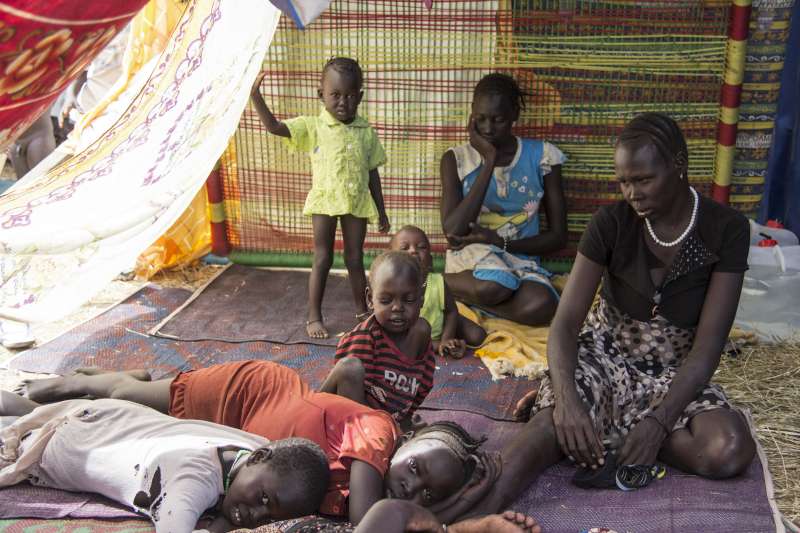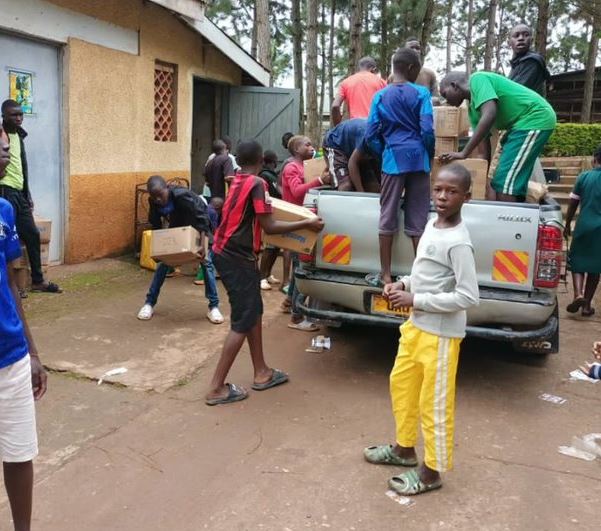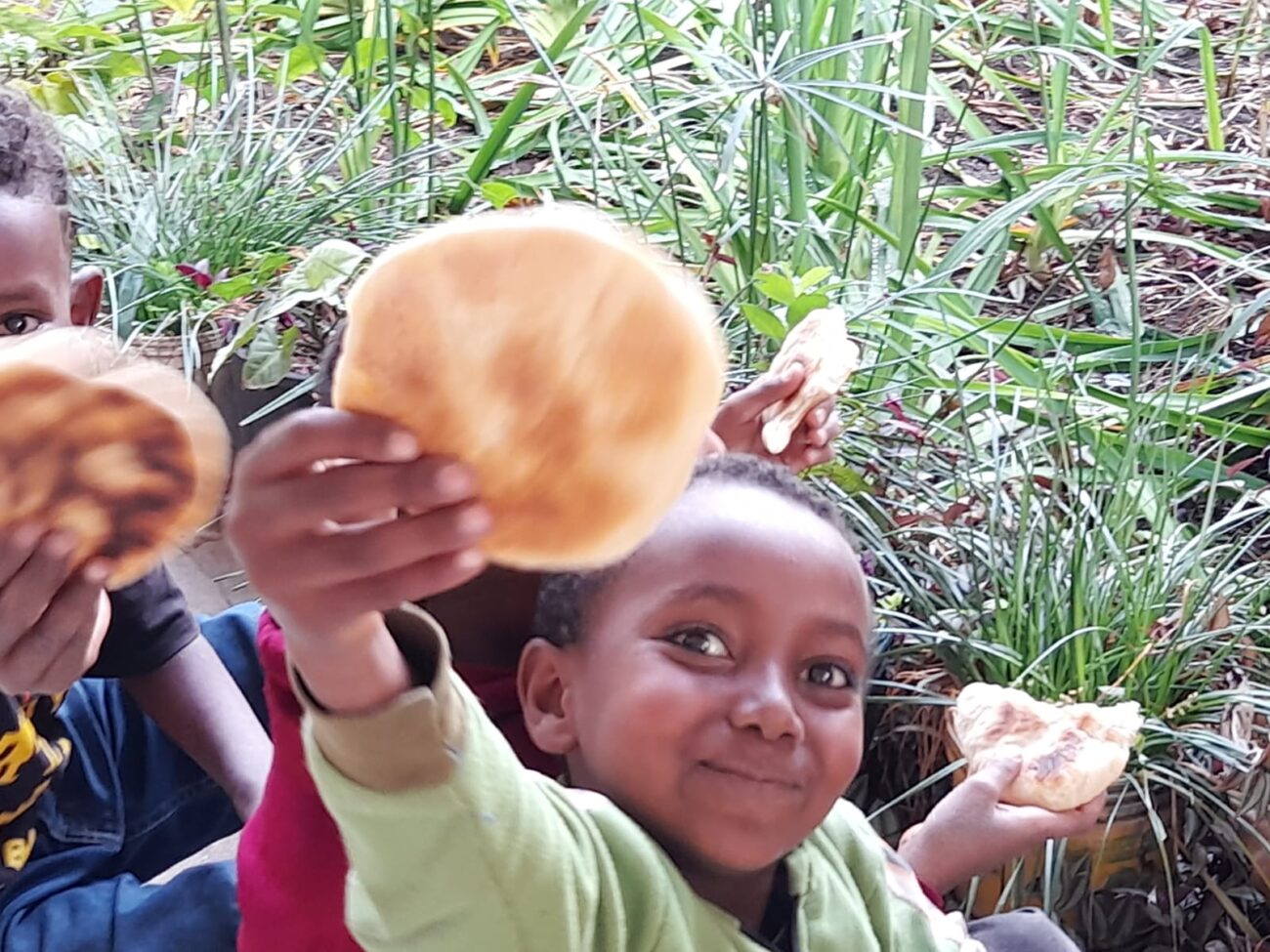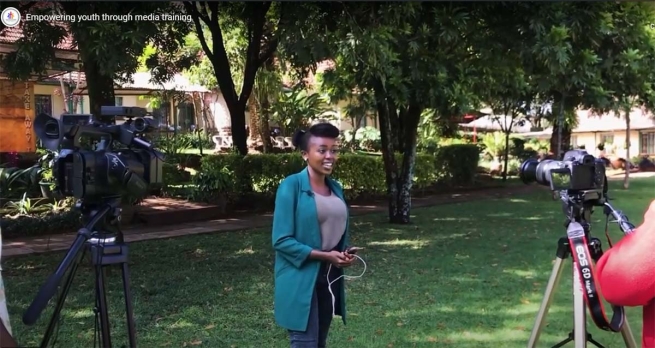UNITED NATIONS: Refugee exodus from strife-torn South Sudan picks up momentum, UN reports

(United Nations) As the fighting in parts of South Sudan grinds on between Government forces and rebels despite ceasefire talks, more and more civilians are fleeing to neighboring countries, with some 2,500 people a day now seeking refuge in Uganda, the United Nations refugee agency (UNHCR) reported today.
As of yesterday, 23,546 South Sudanese refugees had arrived in Uganda since the conflict erupted a month ago in the world’s youngest country, which only gained independence in 2011 after seceding from Sudan, when President Salva Kiir said soldiers loyal to former deputy president Riek Machar, dismissed last July, reportedly launched an attempted coup.
“They are now crossing at a rate of up to 2,500 people a day,” UNHCR spokesperson Melissa Fleming told a news briefing in Geneva.
These new arrivals come at a time when UNHCR’s Uganda office is trying to cope with a continuing influx of refugees from the Democratic Republic of the Congo (DRC). “We still have 8,000 new Congolese arrivals at three reception centers in western Uganda, so our staff and our supplies are stretched,” Ms. Fleming said.
Smaller but growing numbers of South Sudanese refugees are also fleeing to other neighboring countries. More than 5,300 refugees have been registered in Ethiopia – though the number is likely higher as the remote border area is hard to access. In north-west Kenya’s Kakuma Refugee Camp, where as many as 300 South Sudanese are now arriving daily, UNHCR staff registered 3,173 new arrivals by Sunday evening.
The situation in Sudan remains less clear. At least several hundred South Sudanese have crossed the border, and perhaps several thousand. But with many groups, including nomads and rebels, active in the area, it is difficult to know exactly how many are refugees, Ms. Fleming said.
Representatives of Mr. Kiir and Mr. Machar are meeting in Addis Ababa, Ethiopia, in talks mediated by the East African regional organization, the Intergovernmental Authority on Development (IGAD), with an immediate ceasefire at the top of the agenda.
Inside South Sudan, UNHCR is operating with a reduced staff of 200 people because of fighting and insecurity throughout much of the country, but it continues to supply services to some 230,000 existing refugees at 10 camps in South Sudan.
“We have also been taking on increased responsibilities for the 57,000 civilians taking refuge in 10 UN compounds throughout the country,” Ms. Fleming stressed. “We are helping lead efforts to protect especially vulnerable people like women and children. And we have brought in experts in areas such as site planning and camp management.”
Yesterday a chartered flight arrived in Juba, the capital, carrying essential relief items from UNHCR’s stockpiles in Nairobi, including 12,500 blankets, 2,500 sets of cooking pots and other kitchen equipment, and 4,000 plastic sheets to shelter 20,000 displaced people in and around the capital.
In Maban, north-eastern South Sudan, just four UNHCR international staff and 11 national staff have been working with partners and refugees to serve 120,000 refugees in four camps, making sure that health services remain available and water pumps are still working.
UNHCR and the UN World Food Program (WFP) together have distributed food rations to the refugees for 45 days instead of the normal 30 days, so that they will be able to eat if services are disrupted.
“We are also in the process of distributing soap in all four camps. Given the dangerous and fast-changing nature of operating in South Sudan, we are stretching resources and working to fill any gaps in service,” Ms. Fleming said.
The agency is also preparing to return personnel to Yida in Unity state, where three national staff and partners have been continuing to serve the 77,000 refugees in Yida and Ajuong Thok camps close to the border with Sudan. But that plan is contingent on the deployment of additional UN peace-keepers.
Operating in Unity state remains dangerous and unpredictable and last week UNHCR lost six pick-up trucks to looters, who also helped themselves to barrels of fuel and spare parts for vehicles and water pumps in Yida.
The South Sudan Government has declared a state of emergency in Unity and Jonglei states. With opposition forces now controlling Bor, the Jonglei capital, a large government military contingent has moved north to Pariang, close to Yida and Ajuong Thok camps.
“As a result, we are greatly worried about any effects of the fighting on the refugees and on our ability to serve them. We remind all parties to the conflict that refugee camps must remain civilian in character,” Ms. Fleming said.
On other fronts, the UN Mission in South Sudan, UNMISS, continues to protect approximately 62,000 civilians at its bases, with humanitarian actors providing relief and support. This includes nearly 30,000 at its two Juba bases, a UN spokesperson said today.
The Mission also reports that the situation in Juba continues to be tense. In addition to protecting civilians in its bases, Mission troops are conducting day and night patrols in the capital. UNMISS notes continued instability and fighting in a number of locations, including around Bor and in areas in Unity State.
In Jonglei State, the Mission reports fighting south of Bor and sporadic gunfire in the vicinity of its compound. It also says that a number of explosions have been heard this morning southeast of the city.
In Unity State, the Mission undertook a patrol to Pariyang and observed that most villages along the road from Mayom Junction to Pariyang appeared burnt or looted. Severe food, water and shelter shortages were also reported to the Mission by local officials.
The spokesperson said that UNMISS chief Hilde Johnson, continues to meet with senior Government officials as well, as with opposition leaders, to ensure full cooperation with the Mission to enable it to implement its mandate to protect civilians.
###
See this United Nations article at its original location >
Photo: A family of South Sudanese civilians shelter at a UN base in Juba. UNHCR has been taking on increased responsibilities for the 57,000 civilians taking refuge in 10 UN compounds throughout the country. UNHCR/K. McKinsey




